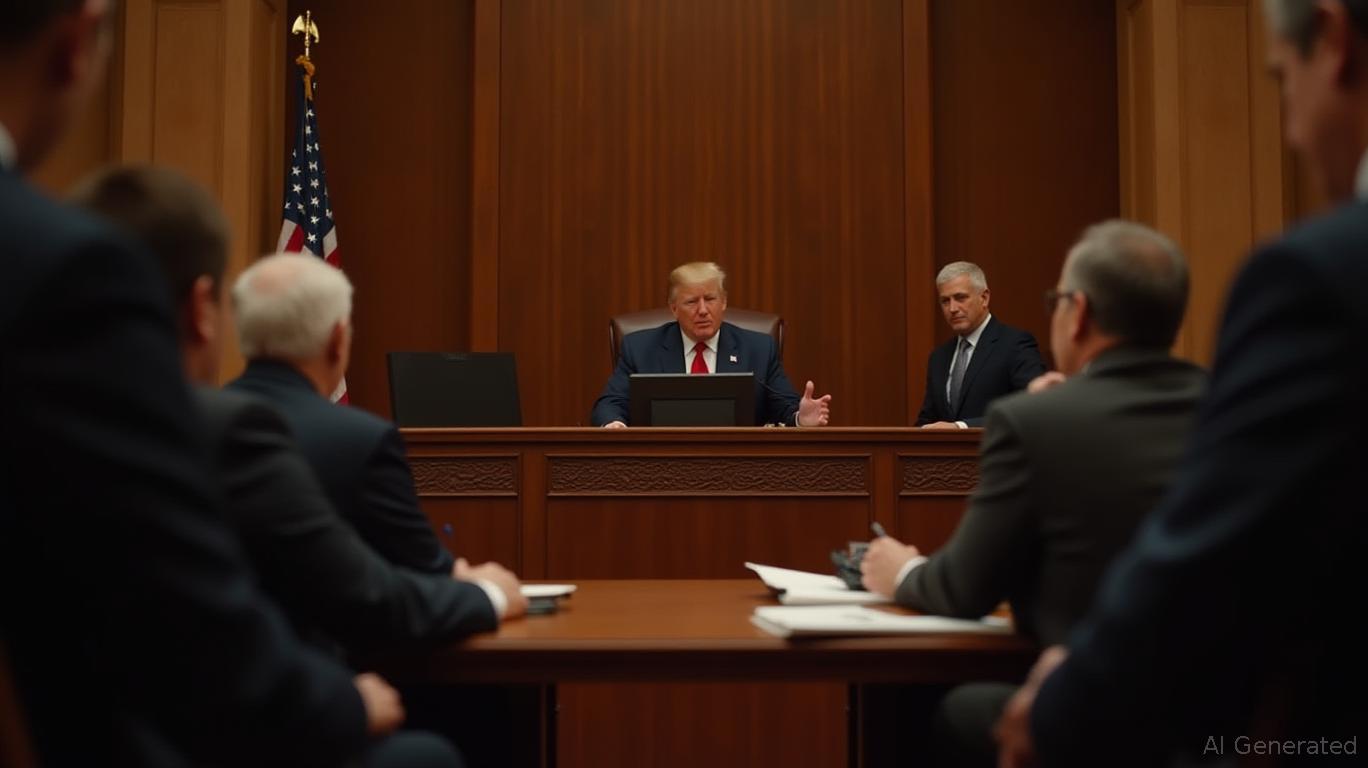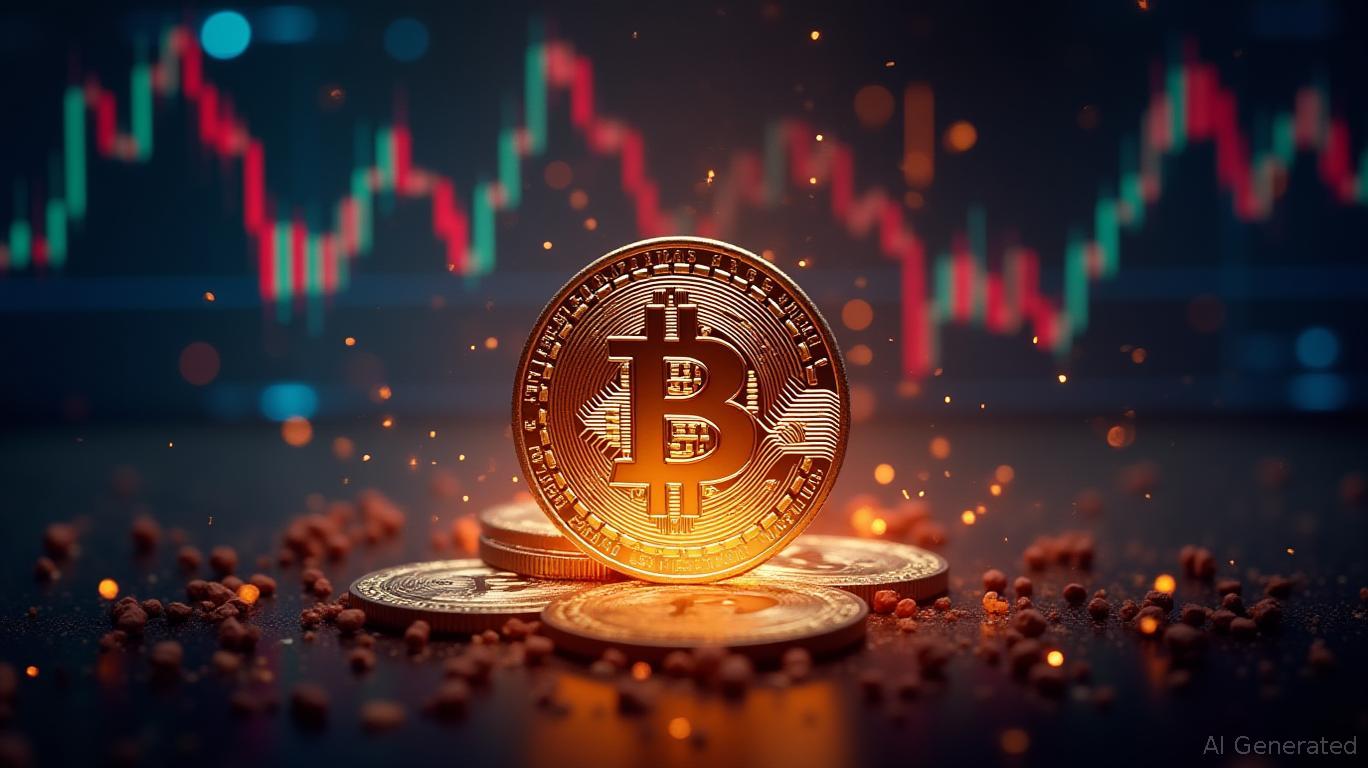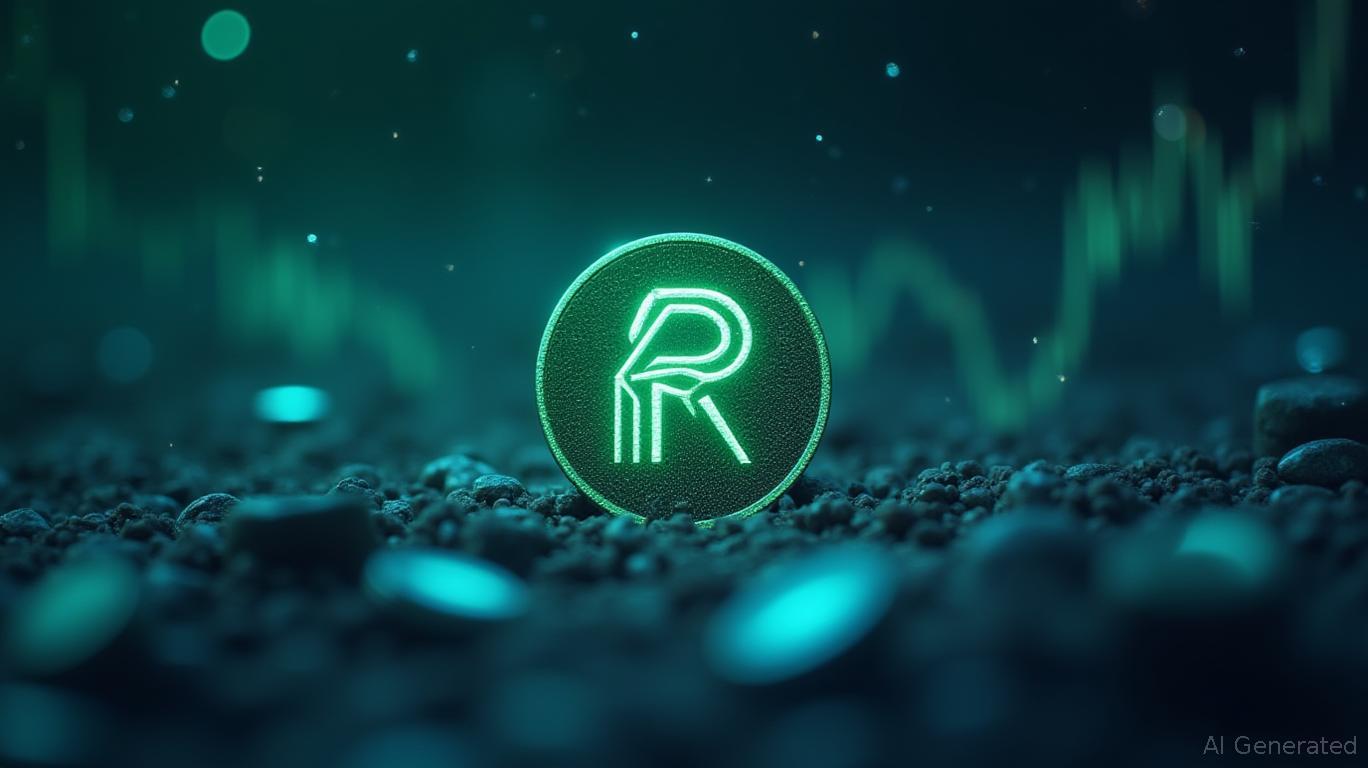Supreme Court Decision on Tariffs May Require $140 Billion in Refunds and Prompt Federal Reserve to Lower Rates
- UBS warns a Supreme Court ruling against Trump's tariffs could force $140B refunds, straining U.S. fiscal resources and prompting potential Fed rate cuts. - The refunds stem from 39% Swiss tariffs deemed potentially unlawful, with fiscal impact equivalent to 7.9% of 2025's projected budget deficit. - Legal challenges highlight executive overreach risks, while reduced tariffs could boost consumer spending and ease inflation, creating room for Fed easing. - Swiss business leaders have lobbied Trump to lowe
UBS Group AG has cautioned that if the Supreme Court rules against former President Donald Trump’s prominent tariff measures, the U.S. government may be compelled to return $140 billion in tariffs, putting pressure on federal finances and potentially paving the way for the Federal Reserve to lower interest rates. The Swiss financial institution’s recent
The possible repayments are linked to ongoing lawsuits challenging Trump’s 39% tariffs on Swiss imports—the steepest among developed nations—as well as similar duties targeting other countries. Should the court find these tariffs illegal, the U.S. Treasury would be required to issue substantial refunds, amounting to 7.9% of the projected 2025 federal deficit, according to the

The fiscal consequences could encourage the Fed to adopt a more accommodative stance. UBS suggests that if tariffs are lowered following a court decision, American consumers would see increased purchasing power, inflation would ease, and the central bank would have more scope to cut rates. "This scenario would allow the Fed to move toward policy normalization without the risk of runaway inflation," UBS notes. This view is consistent with market sentiment, as investors are already expecting a rate reduction in December, with additional cuts likely in 2026, according to a
The legal dispute over tariffs has escalated as the Supreme Court considers whether the Trump administration exceeded its powers under the International Emergency Economic Powers Act. A
UBS also points out that the overall market effect of tariff refunds would be modest. While importers might benefit from lower expenses, these gains are unlikely to meaningfully impact S&P 500 profit forecasts, since tariffs have not been a major drag on corporate earnings, the bank observes. UBS expects that if trading partners avoid retaliatory actions, the U.S. economy would remain stable and equity markets would likely react positively to reduced trade friction.
Nonetheless, the Fed’s willingness to cut rates will depend on the broader economic environment. Officials from the Trump administration, including Treasury Secretary Scott Bessent, have warned of possible recession risks and urged the Fed to act swiftly, as reported by the
With legal and economic factors intersecting, UBS’s analysis frames the potential rollback of Trump-era tariffs as a turning point for U.S. fiscal and monetary strategy. The decision could reshape trade policy and provide the Fed with an opportunity to adjust its approach in the wake of the pandemic.
Disclaimer: The content of this article solely reflects the author's opinion and does not represent the platform in any capacity. This article is not intended to serve as a reference for making investment decisions.
You may also like
Bitcoin Updates Today: Bitcoin Faces Volatility Compression: November's Critical $100k Battle
- Bitcoin faces a volatility squeeze near $100,000 as November 2025 approaches, with potential for dramatic price swings. - Galaxy Digital cuts 2025 BTC price target to $120,000, citing institutional outflows, whale distributions, and market corrections. - Technical indicators show compressed Bollinger Bands and extreme volatility levels, historically preceding major price moves. - Geopolitical risks and regulatory scrutiny contrast with JPMorgan's $165,000 2025 forecast, pending ETF inflows and Fed policy

Starknet Allocates 100 Million STRK to Address DeFi’s Challenges in Scalability and Security
- Starknet allocates 100M STRK tokens to boost DeFi innovation, targeting scalability and security challenges through zero-knowledge infrastructure. - CeFi-DeFi convergence accelerates as platforms like SunPerp blend CEX usability with on-chain custody, surpassing $100M TVL despite recent sector vulnerabilities. - A $93M exploit at Stream Finance exposed DeFi risks, prompting urgent withdrawals and highlighting the need for robust risk frameworks in interconnected protocols. - AI integration in DeFi reshap

SBI and Chainlink Connect Traditional Finance and DeFi Through Secure Tokenized Compliance
- SBI Digital Markets adopts Chainlink CCIP to secure cross-chain transfers of tokenized assets like securities and real-world assets. - Integration uses CCIP's private transactions and ACE compliance engine to protect sensitive data while aligning with global regulations. - The partnership bridges TradFi and DeFi by enabling instant settlements and reducing cross-border transfer costs, supporting Asia-Pacific tokenized securities growth. - Industry experts highlight CCIP's role in addressing blockchain fr

Robinhood’s Bold Move: Expanding Prediction Markets via Collaborations Instead of Building Platforms
- Robinhood's prediction markets generated $100M+ annualized revenue in Q3 2025, surpassing expectations through partnerships with Kalshi and Polymarket. - The segment's explosive growth stems from 2024 regulatory changes and sports betting legalization, with 2.5B contracts traded in October 2025. - CEO Tenev prioritizes user scale over vertical integration, leveraging 26M users to capture market share without developing proprietary platforms. - Q3 revenue hit $1.19B with $386M net profit, driving $130B ma
